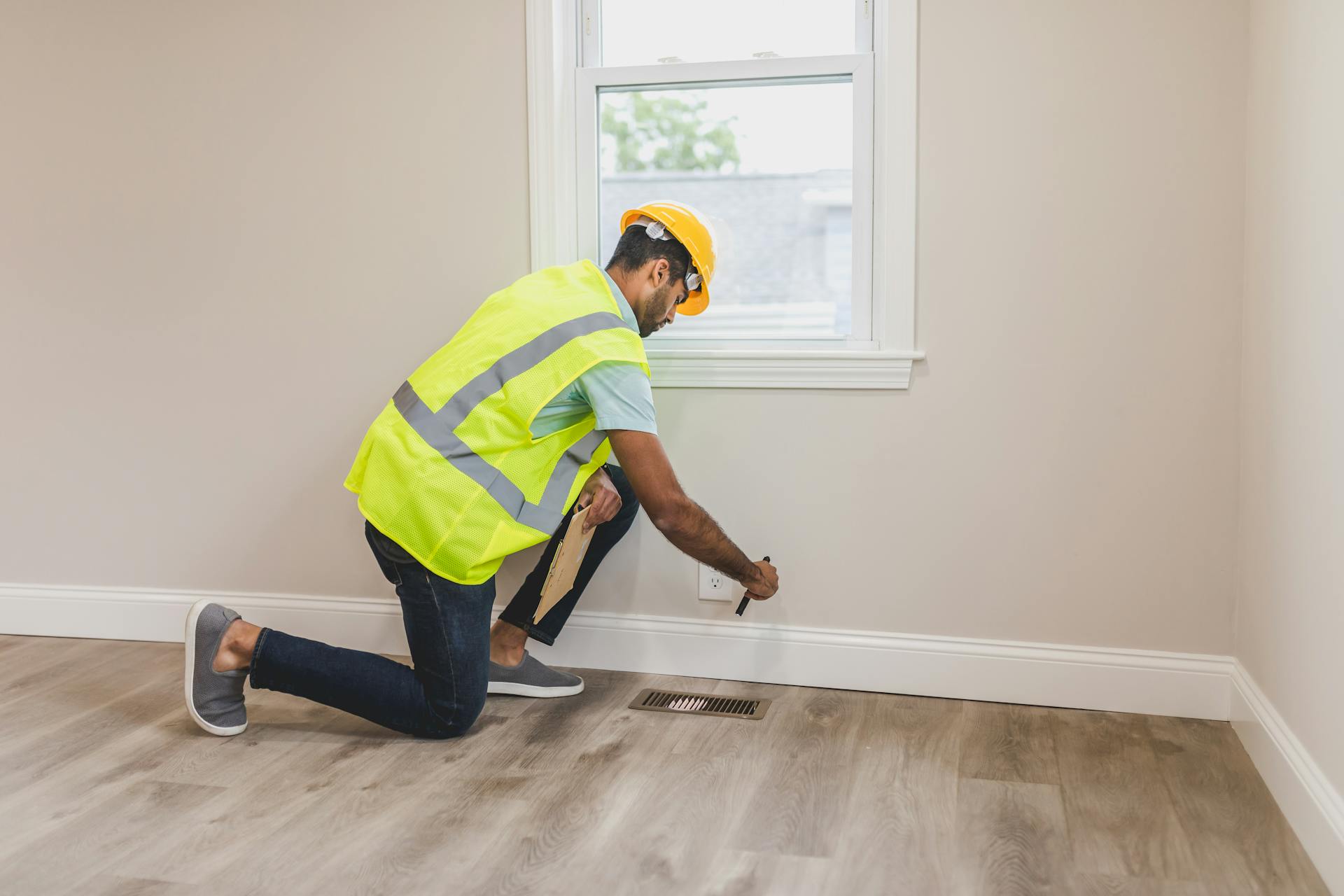Becoming a landlord can be an exciting venture, but it also comes with a great deal of responsibility. One of the most crucial aspects of successful property management is maintenance—keeping your property in top condition not only ensures your tenants’ satisfaction but also protects your investment for the long term.
As a first-time landlord, the world of property management can feel overwhelming. Between finding reliable tenants, understanding legal requirements, and managing finances, it’s easy to overlook one key factor: maintenance. Proper maintenance isn’t just about fixing things when they break; it’s about preventing issues before they arise and ensuring your property remains a safe, comfortable place for tenants to call home. However, first-time landlords often face challenges in navigating this responsibility—whether it’s balancing time, understanding what needs regular attention, or knowing where to invest in upkeep. In this article, we’ll provide essential maintenance tips that will help you stay on top of your responsibilities, ensuring a smooth and profitable rental experience for both you and your tenants.
1. Understand Your Legal Maintenance Obligations
As a landlord, it’s essential to familiarize yourself with your legal obligations concerning property maintenance. Landlord-tenant laws vary by region, but most jurisdictions require landlords to maintain a safe and habitable living environment. This includes ensuring that basic services like water, heat, and electricity are functional, as well as upholding the structural integrity of the property. Major systems such as plumbing, heating, and electrical components are typically the landlord’s responsibility to repair or replace when needed. Failure to meet these obligations can lead to costly disputes, potential fines, or even legal action. To avoid these issues, it’s crucial to stay informed about local housing laws and always address tenant complaints promptly.
2. Create a Maintenance Checklist
Staying organized is key to ensuring regular upkeep of your rental property. Creating a comprehensive maintenance checklist can help you stay on top of important tasks and avoid overlooking critical repairs. The checklist should cover essential areas such as plumbing (e.g., checking for leaks), electrical systems (ensuring circuits are functioning properly), HVAC systems (cleaning and servicing), and appliances (checking for wear and tear). Developing a routine maintenance schedule will also help keep the property in top condition. For example, plan for monthly inspections of high-use areas, quarterly checks of appliances, and a more in-depth annual review to assess the overall condition of the property.
3. Establish Emergency Repair Procedures
Emergencies can happen at any time, and when they do, tenants need to know how to report issues quickly and efficiently. Providing tenants with clear instructions on how to contact you or a designated repair service in case of an emergency is crucial. Create an emergency contact list that includes trusted professionals such as plumbers, electricians, and handymen, so that help is always available when needed. Additionally, encourage tenants to take care of the property and follow simple maintenance practices (e.g., not overloading appliances) to minimize the chances of emergencies. Clear communication with your tenants helps maintain a positive relationship and ensures that minor issues don’t escalate into major problems.
4. Regular Inspections to Prevent Major Issues
One of the best ways to prevent costly repairs is by conducting regular property inspections. Inspections every 6–12 months allow you to catch small issues before they become significant problems. During these inspections, look for common issues such as water damage, mold, plumbing leaks, or electrical hazards. It’s also important to check for signs of wear and tear, such as worn carpets or deteriorating paint. Documenting your findings during these inspections can help keep track of repairs over time and serve as a reference for future maintenance. Proper documentation can also be invaluable in case of disputes with tenants, providing evidence that the property was well-maintained.
5. Maintenance of Appliances
Appliances such as refrigerators, stoves, and washing machines are integral to your tenants’ daily lives, and keeping them in good condition is essential for tenant satisfaction. Regular cleaning and servicing of these appliances can extend their lifespan and prevent unexpected breakdowns. For example, cleaning refrigerator coils, replacing oven filters, and checking for washer leaks are all small tasks that can prevent costly repairs down the line. In addition, setting expectations with tenants about the proper use and care of appliances can reduce the likelihood of damage. By maintaining appliances proactively, you’ll ensure that your tenants are happy and avoid expensive repairs.
6. Landscaping and Exterior Maintenance
First impressions matter, and a well-maintained exterior can go a long way in attracting and retaining tenants. Landscaping plays a significant role in creating a welcoming environment, so be sure to keep the lawn mowed, trim shrubs, and clear debris regularly. Seasonal tasks such as snow removal in winter or leaf cleanup in fall are also essential to ensure your property remains safe and presentable. Don’t forget to inspect the exterior of the property as well—check the roof, gutters, and siding for damage or signs of wear. Regular exterior maintenance not only helps improve curb appeal but also protects the structure from potential damage caused by weather or neglect.
7. Keep Detailed Records
Maintaining thorough records of all maintenance activities is crucial for both practical and legal reasons. By keeping detailed logs of inspections, repairs, and expenses, you can stay organized and ensure that no task is overlooked. These records can also be helpful when filing taxes, as many property-related expenses are deductible. In case of disputes with tenants or future buyers, having a well-documented history of maintenance can serve as evidence that the property was properly cared for. It also makes it easier to track recurring issues and identify patterns that might indicate deeper problems with the property.
8. Set Aside a Maintenance Fund
As a landlord, it’s important to prepare for unexpected repairs and expenses. Setting aside a dedicated maintenance fund can give you peace of mind and help ensure you’re financially ready for emergency repairs or upgrades. A good rule of thumb is to save about 1–2% of the property’s value each year for maintenance. For example, if your property is worth $200,000, setting aside $2,000–$4,000 annually can help cover unexpected costs. Having a maintenance fund not only prepares you for large-scale repairs but also enables you to handle minor maintenance tasks without scrambling for funds. Over time, this fund can grow, providing a financial cushion for ongoing property upkeep.
Conclusion
Proper maintenance is the backbone of successful property management. By understanding your legal obligations, staying organized with a maintenance checklist, and proactively addressing issues before they become major problems, you’ll ensure a smooth and profitable rental experience. Regular inspections, maintaining appliances, and managing both the interior and exterior of your property will help keep tenants satisfied and protect your investment. With the right systems in place, managing maintenance doesn’t have to be overwhelming. Instead, it can become a manageable and rewarding part of your landlord journey.
Frequently Asked Questions (FAQs)
1. How often should I inspect my rental property?
It’s recommended to conduct property inspections at least once every 6–12 months. This allows you to catch potential issues early and ensures the property is well-maintained. You may also want to schedule inspections before a new tenant moves in or when renewing a lease.
2. Am I responsible for repairing appliances in my rental property?
As a landlord, you are typically responsible for maintaining and repairing major appliances that are included with the property, such as refrigerators, stoves, and washing machines. However, it’s important to clarify your responsibilities with tenants in the lease agreement, including whether they are expected to handle minor maintenance tasks like replacing filters or light bulbs.
3. What should I include in my tenant’s emergency repair instructions?
Make sure your tenants know how to contact you or a repair service for emergency issues such as water leaks, electrical problems, or heating malfunctions. Provide them with a list of emergency contacts, including local plumbers, electricians, and handymen, as well as guidelines on how to report non-emergency issues. Clear communication can prevent escalation of small issues into costly repairs.
4. How much should I budget for property maintenance?
A good rule of thumb is to set aside 1–2% of your property’s value annually for maintenance. For example, if your property is worth $200,000, you should aim to budget between $2,000 and $4,000 a year. This fund can be used for both routine maintenance and unexpected repairs.
5. Can tenants perform repairs or maintenance themselves?
Tenants are usually not authorized to perform significant repairs, especially if they could affect the safety or habitability of the property. It’s best to include a clause in your lease agreement specifying that tenants should report issues promptly and not attempt repairs unless agreed upon. This ensures that repairs are handled professionally and according to safety standards.
6. How do I know if I’m complying with local landlord-tenant laws regarding maintenance?
To stay compliant, it’s important to familiarize yourself with the specific landlord-tenant laws in your area. These laws outline your responsibilities for maintaining the property in a habitable condition. You can check with local housing authorities or consult a legal professional to ensure you’re meeting all requirements. It’s also beneficial to stay updated on any changes to these laws.
7. What’s the best way to keep track of all maintenance tasks and repairs?
Keeping detailed records is key to staying organized. Use a digital or physical maintenance log where you document every task, inspection, repair, and related expense. This will help you stay on top of your responsibilities, and can be invaluable for tax purposes, future repairs, or resolving any disputes with tenants.
8. Should I hire a property management company to handle maintenance?
Hiring a property management company can be a good option if you prefer to delegate maintenance tasks. They can handle everything from inspections to repairs, ensuring your property is well-maintained. However, this service comes at a cost—typically 8-12% of the monthly rent. If you have the time and skills, managing maintenance yourself can save you money.
9. What maintenance tasks are tenants responsible for?
Tenants are usually responsible for minor maintenance tasks like changing light bulbs, maintaining cleanliness, and promptly reporting issues. Some landlords may ask tenants to maintain the yard or perform small upkeep tasks depending on the lease agreement. Be sure to specify these responsibilities clearly in the lease to avoid confusion.
10. How can I prevent maintenance issues from becoming emergencies?
Preventative maintenance is key. Regularly inspect your property, perform routine repairs, and stay on top of appliance servicing. Encourage tenants to report issues early before they escalate. For example, regular HVAC system cleaning can prevent breakdowns during extreme weather conditions, and checking plumbing for leaks can prevent water damage.

